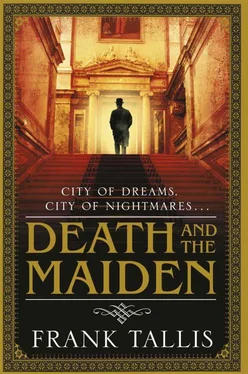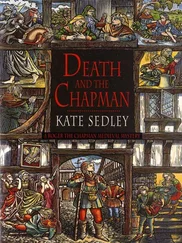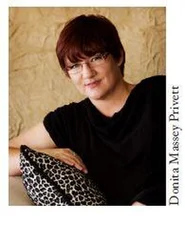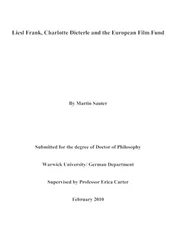Frank Tallis - Death And The Maiden
Здесь есть возможность читать онлайн «Frank Tallis - Death And The Maiden» весь текст электронной книги совершенно бесплатно (целиком полную версию без сокращений). В некоторых случаях можно слушать аудио, скачать через торрент в формате fb2 и присутствует краткое содержание. Жанр: Исторический детектив, на английском языке. Описание произведения, (предисловие) а так же отзывы посетителей доступны на портале библиотеки ЛибКат.
- Название:Death And The Maiden
- Автор:
- Жанр:
- Год:неизвестен
- ISBN:нет данных
- Рейтинг книги:5 / 5. Голосов: 1
-
Избранное:Добавить в избранное
- Отзывы:
-
Ваша оценка:
- 100
- 1
- 2
- 3
- 4
- 5
Death And The Maiden: краткое содержание, описание и аннотация
Предлагаем к чтению аннотацию, описание, краткое содержание или предисловие (зависит от того, что написал сам автор книги «Death And The Maiden»). Если вы не нашли необходимую информацию о книге — напишите в комментариях, мы постараемся отыскать её.
Death And The Maiden — читать онлайн бесплатно полную книгу (весь текст) целиком
Ниже представлен текст книги, разбитый по страницам. Система сохранения места последней прочитанной страницы, позволяет с удобством читать онлайн бесплатно книгу «Death And The Maiden», без необходимости каждый раз заново искать на чём Вы остановились. Поставьте закладку, и сможете в любой момент перейти на страницу, на которой закончили чтение.
Интервал:
Закладка:
‘Well,’ said Liebermann. ‘I hope you are happy.’
‘I’m not sure we are.’
‘Then why do you stay together?’
Through the haze of cigarette smoke Clara’s eyes supplied her reason. Observing Liebermann’s surprise she said, ‘Max, you and I, we were so preoccupied with propriety, protecting my honour. If you hadn’t been so disposed to respect tradition, convention, we too might have found a reason to carry on — even in the absence of happiness.’
When Liebermann returned to his apartment he played through Brosius’s Three Fantasy Pieces . He then went to his bedroom where he allowed himself to fall backwards onto the mattress. Staring at the ceiling, he thought about Clara. Her forgiveness had been redemptive, but her candid confession had left him feeling vaguely unsettled. He imagined his former fiancee visiting shabby hotels, the kind where rooms could be reserved by the hour, surrendering herself to dissolute afternoon pleasures and the instructive ministrations of the young cavalry officer, his shiny boots discarded next to hers on the floor. A vivid tableau flooded Liebermann’s mind, churning up unwieldy, complicated emotions.
What if I hadn’t behaved honourably? What if I had insisted that we become more intimate, prior to marriage?
Clara had not been opposed to the idea. Indeed, she had offered herself, fully, but he had refused, not wishing to take advantage.
Why?
Was it the insidious influence exerted by the religion of their parents, the tacit demand that the rituals of courtship should be respected? Values passed down through generations, God speaking through the mouths of rabbis and fathers. Liebermann had renounced empty dogma, but he understood only too well that the prohibitions of faith had a habit of finding a home in the depths of the unconscious. He remembered the statue of Moses scowling.
If they had pre-empted the ceremony, stealing connubial entitlements before the appointed hour, would they now, as Clara supposed, be husband and wife? Liebermann had seen in her eyes the easy confidence of a natural sybarite, a propensity that it had not been his privilege to discover and encourage. Such delights might have compensated amply for the sterility of their conversations. After all, what defined marriage if not the physical and procreative union at its core? Amity and happiness were incidental, dispensable.
She had asked him if there had been anybody else. Her father had posed the same question. On both occasions, Liebermann had answered no — and in a sense this was true. He had not begun an affair, only a friendship.
Amelia Lydgate, from their very first encounter, had fascinated him. Whereas Clara had wanted to talk about social events and famous people, Amelia had spoken with impressive fluency about science, speculative fiction and diseases of the blood. And although it shamed him, Liebermann had to admit that he had always found the Englishwoman desirable, even when she had been a patient in his care: the shadowy curves of her slight body beneath a diaphanous hospital gown, the russet cascade of her untied hair — and such eyes — sky reflected in mercury — glacial, metallic, forensic intelligence.
Had he intended to begin a relationship with Amelia Lydgate? Or had she simply made him realise that Clara was, at that time at any rate, too superficial a person to be his lifelong companion? The latter, he hoped. But even if he was being disingenuous with himself and his intentions had always been suspect, those same intentions had never — could never — proceed towards consummation.
In addition to the peculiarity of the Englishwoman’s manner, her frosty reserve, there was also her past to contend with. Liebermann had treated her for hysterical symptoms that had arisen from a sexual trauma: unwelcome advances from a person she had trusted, a guardian. How could he, Liebermann, make romantic overtures? To do so would be to put her at risk. And this had always been at the back of his mind: replication of the conditions that had caused her illness might easily precipitate a relapse.
Since ending with Clara, he had lived, for the most part, an unsatisfactory, unfulfilling bachelor’s existence …
Liebermann got up and left the bedroom. He crossed the hallway and, passing through open double doors, fixed his gaze on the piano. Standing by the Bosendorfer, he let his right hand caress the keys. He picked out one of Brosius’s themes. Without the left-hand accompaniment the melody sounded stark and simple. In its exposed state, lifted clear of a dense harmonic context, he saw a feature of its construction that had previously escaped his notice. It filled him with a sense of wonder. The composer, dead for so many years, was speaking to him.
20
The private dining room was rather shabby and situated in one of the less fashionable suburbs. It contained a round table, a cracked leather sofa and an old piano. Mounted on the wall was an inefficient gas jet that coughed and gasped like an asthmatic vagrant. Arianne Amsel had dressed modestly for the occasion in a subdued ensemble of muted colours; however, the impression of unassuming diffidence that she hoped to create was undermined by the diamond brooch attached to the lapel of her jacket. She had wanted to appear like the other women who frequented the dining rooms, mistresses of older men, but she was obviously not a shop girl. Amsel was an operatic diva and, inevitably, ordinariness did not come easily to her. Her companion was a short, dapper man in his late sixties, somewhat wrinkled and with liver-spotted hands. He possessed unremarkable features, a face easily lost in a crowd and just as easily forgotten. Receding hairline, steel-rimmed spectacles, neatly trimmed beard, he might have been a retired civil servant, university professor or bank manager. If he hadn’t become the leader of the claque, Hanno Vranitzky would have made an excellent spy.
They had finished eating and the remains of their palatschinken — paper-thin golden-brown pancakes — floated on a half-consumed lake of vanilla sauce and apricot conserve. Although the private dining room was mouldering and dilapidated, the management always seemed to provide good food and wine, a necessary requirement, Amsel supposed, for the well-heeled gentlemen on whose patronage the establishment depended for its survival.
Herr Vranitzky was making notes as Amsel referred to key moments in specific arias: top C, the coloratura passage, a sudden modulation to the relative minor . The claqueur was so conversant with operatic highlights that he never once asked for clarification. On completing her instructions Amsel said, ‘That is all.’
‘Very good,’ Vranitzky replied, inclining his head and pocketing his notebook. He lit a cigar and sat back in his chair.
The sound of raucous laughter followed by a playful screech penetrated the walls. Neither of them reacted.
‘Mahler!’ exclaimed Amsel. ‘He’s driving us all mad with his pedantry. Rehearsals have become a nightmare. Endless repetitions, obsessive attention to detail, a refusal to consider any opinion other than his own — it’s all too much. Even the orchestra have had enough. Did you see that article in the Deutsche Zeitung? The one about the Jewish regime?’
‘Yes,’ said Vranitzky. ‘I did. Herr Mahler goes out of his way to offend people. Do you know who wrote it?’
Amsel shook her head, barely acknowledging Vranitzky’s question before continuing. ‘It’s impossible to sing without applause. A cold house kills the voice.’ She craned her neck and stroked her throat with the tips of her fingers. ‘Mahler should know this. A director who forbids the claque knows nothing about singers — their temperament, their psychology.’
Читать дальшеИнтервал:
Закладка:
Похожие книги на «Death And The Maiden»
Представляем Вашему вниманию похожие книги на «Death And The Maiden» списком для выбора. Мы отобрали схожую по названию и смыслу литературу в надежде предоставить читателям больше вариантов отыскать новые, интересные, ещё непрочитанные произведения.
Обсуждение, отзывы о книге «Death And The Maiden» и просто собственные мнения читателей. Оставьте ваши комментарии, напишите, что Вы думаете о произведении, его смысле или главных героях. Укажите что конкретно понравилось, а что нет, и почему Вы так считаете.












